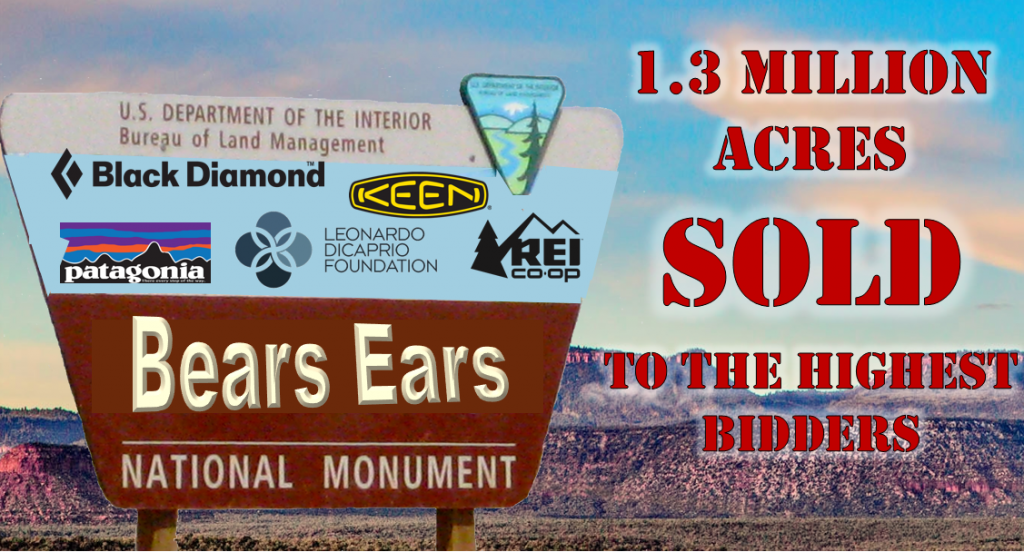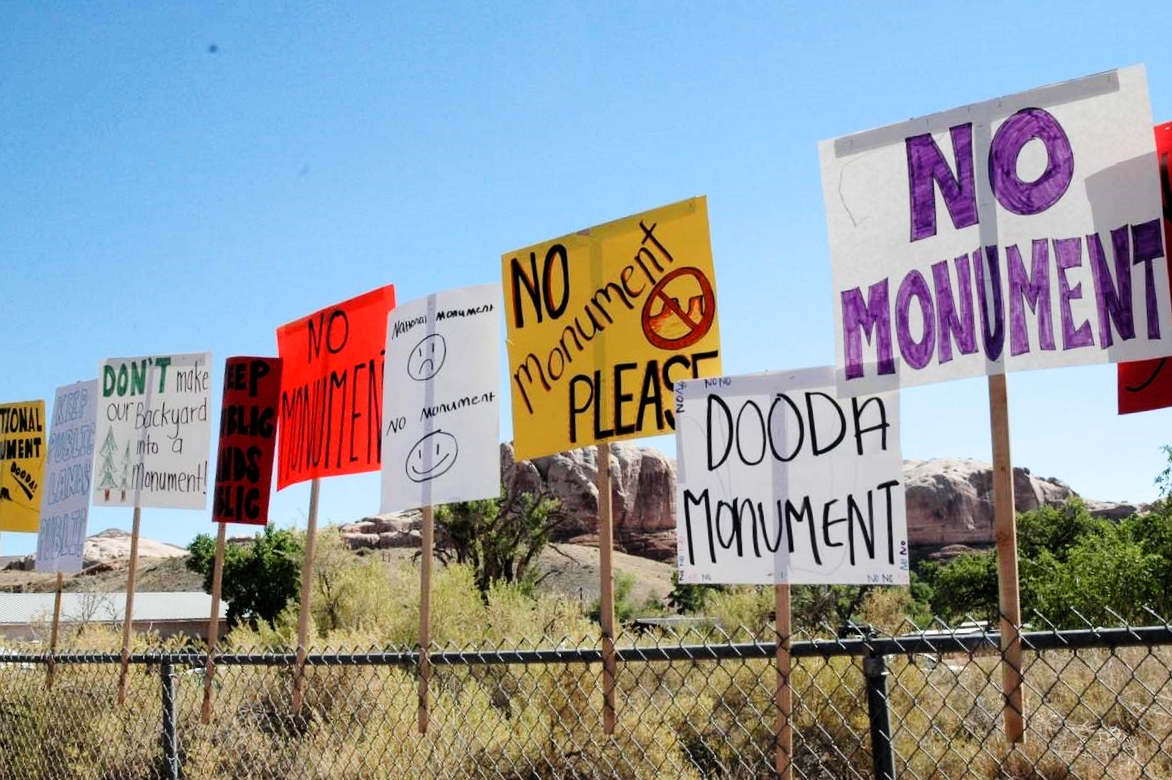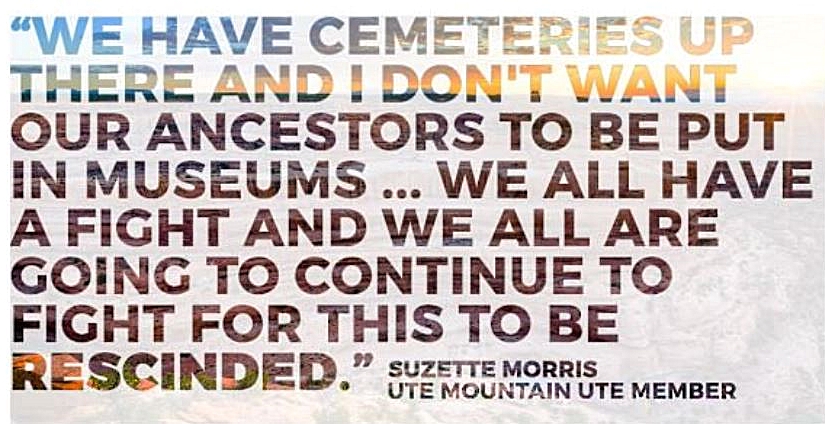
WHAT YOU CAN DO:
- Utah national monuments ‘adversely impact’ ranching, multiple use, economic development
- Stewards of San Juan County rally locals to magnify message, #RescindBearsEars
- Ranching, energy, jobs factor in to possible reduction of Grand Staircase-Escalante Monument
- Ranchers join San Juan County tribes to say ‘no Bears Ears monument’
- Multiple use in Bears Ears will provide better wilderness experience than restrictive monument
- San Juan County’s largest Navajo chapter formally opposes Bears Ears monument
- Tribes used as front to push Bears Ears, but it’s a lie
- Patagonia, et al. looking for subsidies from Antiquities Act land grabs
- Monuments review gives ranchers, landowners hope for greater freedom, control
Interior Department Releases List of Monuments Under Review, Announces First-Ever Formal Public Comment Period for Antiquities Act Monuments
OFFICE OF THE SECRETARY5/5/2017Last edited 5/10/2017Date: May 5, 2017
Contacts: Interior_Press@ios.doi.gov
WASHINGTON – The Department of the Interior today announced the first ever formal public comment period for members of the public to officially weigh in on monument designations under the Antiquities Act of 1906, and the Department released a list of monuments under review under the President’s Executive Order 13792, issued April 26, 2017. A public comment period is not required for monument designations under the Antiquities Act; however, Secretary of the Interior Ryan Zinke and President Trump both strongly believe that local input is a critical component of federal land management.
Comments may be submitted online after May 12 at http://www.regulations.gov by entering “DOI-2017-0002” in the Search bar and clicking “Search,” or by mail to Monument Review, MS-1530, U.S. Department of the Interior, 1849 C Street NW, Washington, DC 20240.
DATES: The Department will shortly publish a notice in the Federal Register officially opening the public comment period. Written comments relating to the Bears Ears National Monument must be submitted within 15 days of publication of that notice. Written comments relating to all other designations subject to Executive Order 13792 must be submitted within 60 days of that date.
“The Department of the Interior is the steward of America’s greatest treasures and the manager of one-fifth of our land. Part of being a good steward is being a good neighbor and listening to the American people who we represent,” said Secretary Zinke. “Today’s action, initiating a formal public comment process finally gives a voice to local communities and states when it comes to Antiquities Act monument designations. There is no pre-determined outcome on any monument. I look forward to hearing from and engaging with local communities and stakeholders as this process continues.”
Executive Order 13792 of April 26, 2017 (82 FR 20429, May 1, 2017), directs the Secretary of the Interior to review certain National Monuments designated or expanded under the Antiquities Act of 1906, 54 U.S.C. 320301-320303 (Act). Specifically, Section 2 of the Executive Order directs the Secretary to conduct a review of all Presidential designations or expansions of designations under the Antiquities Act made since January 1, 1996, where the designation covers more than 100,000 acres, where the designation after expansion covers more than 100,000 acres, or where the Secretary determines that the designation or expansion was made without adequate public outreach and coordination with relevant stakeholders, to determine whether each designation or expansion conforms to the policy set forth in section 1 of the order. Among other provisions, Section 1 states that designations should reflect the Act’s “requirements and original objectives” and “appropriately balance the protection of landmarks, structures, and objects against the appropriate use of Federal lands and the effects on surrounding lands and communities.” 82 FR 20429 (May 1, 2017).
In making the requisite determinations, the Secretary is directed to consider:
(i) the requirements and original objectives of the Act, including the Act’s requirement that reservations of land not exceed “the smallest area compatible with the proper care and management of the objects to be protected”;
(ii) whether designated lands are appropriately classified under the Act as “historic landmarks, historic and prehistoric structures, [or] other objects of historic or scientific interest”;
(iii) the effects of a designation on the available uses of designated Federal lands, including consideration of the multiple-use policy of section 102(a)(7) of the Federal Land Policy and Management Act (43 U.S.C. 1701(a)(7)), as well as the effects on the available uses of Federal lands beyond the monument boundaries;
(iv) the effects of a designation on the use and enjoyment of non-Federal lands within or beyond monument boundaries;
(v) concerns of State, tribal, and local governments affected by a designation, including the economic development and fiscal condition of affected States, tribes, and localities;
(vi) the availability of Federal resources to properly manage designated areas; and
(vii) such other factors as the Secretary deems appropriate.
82 FR 20429-20430 (May 1, 2017).The National Monuments being initially reviewed are listed in the following tables:
NATIONAL MONUMENTS BEING INITIALLY REVIEWED PURSUANT TO CRITERIA IN EXECUTIVE ORDER 13792
Monument Location Year(s) Acreage Basin and Range Nevada 2015 703,585 Bears Ears Utah 2016 1,353,000 Berryessa Snow Mountain California 2015 330,780 Canyons of the Ancients Colorado 2000 175,160 Carrizo Plain California 2001 204,107 Cascade Siskiyou Oregon 2000/2017 100,000 Craters of the Moon Idaho 1924/2000 737,525 Giant Sequoia California 2000 327,760 Gold Butte Nevada 2016 296,937 Grand Canyon-Parashant Arizona 2000 1,014,000 Grand Staircase-Escalante Utah 1996 1,700,000 Hanford Reach Washington 2000 194,450.93 Ironwood Forest Arizona 2000 128,917 Mojave Trails California 2016 1,600,000 Organ Mountains-Desert Peaks New Mexico 2014 496,330 Rio Grande del Norte New Mexico 2013 242,555 Sand to Snow California 2016 154,000 San Gabriel Mountains California 2014 346,177 Sonoran Desert Arizona 2001 486,149 Upper Missouri River Breaks Montana 2001 377,346 Vermilion Cliffs Arizona 2000 279,568 NATIONAL MONUMENTS BEING REVIEWED TO DETERMINE WHETHER THE DESIGNATION OR EXPANSION WAS MADE WITHOUT ADEQUATE PUBLIC OUTREACH AND COORDINATION WITH RELEVANT STAKEHOLDERS
Katahdin Woods and Waters Maine 2016 87,563
The Department of the Interior seeks public comments related to: (1) Whether national monuments in addition to those listed above should be reviewed because they were designated or expanded after January 1, 1996 “without adequate public outreach and coordination with relevant stakeholders;” and (2) the application of factors (i) through (vii) set forth above to the listed national monuments or to other Presidential designations or expansions of designations meeting the criteria of the Executive Order. With respect to factor (vii), comments should address other factors the Secretary might consider for this review.
In a separate but related process, certain Marine National Monuments will also be reviewed. As directed by section 4 of Executive Order 13795 of April 28, 2017, “Implementing An America-First Offshore Energy Strategy” (82 FR 20815, May 3, 2017), the Department of Commerce will lead the review of the Marine National Monuments in consultation with the Secretary of the Interior. To assist in that consultation, the Secretary will accept comments related to the application of factors (i) through (vii) in Executive
Order 13792 as set forth above to the following Marine National Monuments:
MARINE NATIONAL MONUMENTS BEING REVIEWED PURSUANT TO EXECUTIVE ORDERS 13795 AND 13792
Marianas Trench CNMI/Pacific Ocean 2009 60,938,240 Northeast Canyons and Seamounts Atlantic Ocean 2016 3,114,320 Pacific Remote Islands Pacific Ocean 2009 55,608,320 Papahanaumokuakea Hawaii/Pacific Ocean 2006/2016 89,600,000 Rose Atoll American Samoa/Pacific Ocean 2009 8,609,045





We are in favor of limiting the size of monuments and restoring the rights of those people who actually live and protect the land . A much smaller footprint would preserve the sites , and allow economic opportunities for the people.